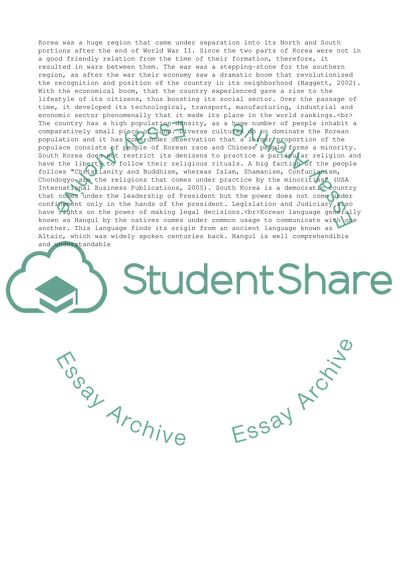Cite this document
(Cross Culture Managment - South Korea Essay Example | Topics and Well Written Essays - 1500 words - 1, n.d.)
Cross Culture Managment - South Korea Essay Example | Topics and Well Written Essays - 1500 words - 1. Retrieved from https://studentshare.org/business/1753224-cross-culture-managment-south-korea
Cross Culture Managment - South Korea Essay Example | Topics and Well Written Essays - 1500 words - 1. Retrieved from https://studentshare.org/business/1753224-cross-culture-managment-south-korea
(Cross Culture Managment - South Korea Essay Example | Topics and Well Written Essays - 1500 Words - 1)
Cross Culture Managment - South Korea Essay Example | Topics and Well Written Essays - 1500 Words - 1. https://studentshare.org/business/1753224-cross-culture-managment-south-korea.
Cross Culture Managment - South Korea Essay Example | Topics and Well Written Essays - 1500 Words - 1. https://studentshare.org/business/1753224-cross-culture-managment-south-korea.
“Cross Culture Managment - South Korea Essay Example | Topics and Well Written Essays - 1500 Words - 1”. https://studentshare.org/business/1753224-cross-culture-managment-south-korea.


